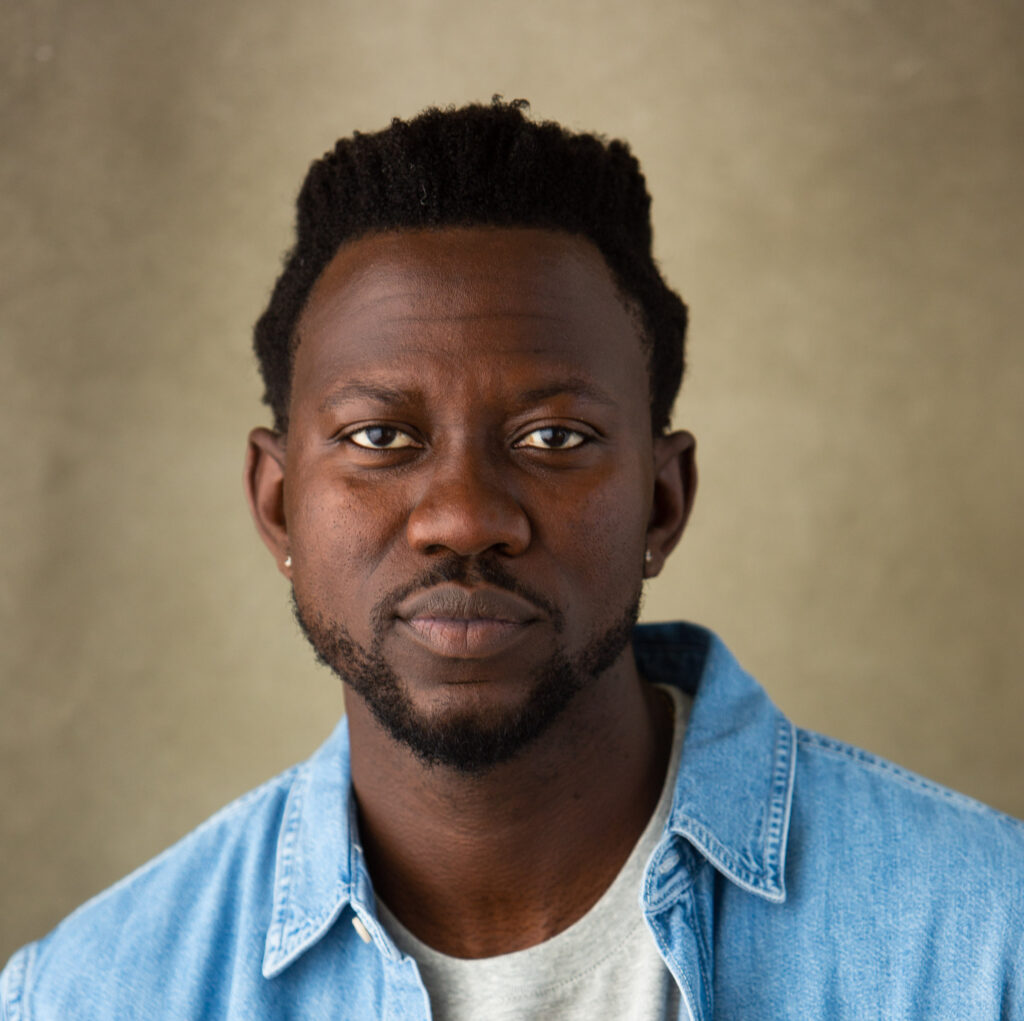This is a compilation of a few stories from my Chapter 10 of my book — PRESS PLAY.
The country with the highest income inequality in the world is South Africa.
Using the Gini index, which is a simple measure of the distribution of income across income percentiles in a population — a higher Gini index indicates greater inequality, with high income individuals receiving much larger percentages of the total income of the population.
South Africa’s Gini Index is currently at 0.63.
In fact, out of the top ten places in the world with the highest level of income and wealth inequality, seven are countries in Africa — six of them being in Southern Africa.
List of top 10 countries with inequality:
- South Africa
- Namibia
- Suriname
- Zambia
- Sao Tome & Principe
- Central African Republic
- Eswatini
- Mozambique
- Brazil
- Belize

More than two decades after South Africa ousted a racist apartheid systemthat trapped the vast majority of South Africans in poverty, more than half the country still lives below the national poverty line and most of the nation’s wealth remains in the hands of a small elite.
This story of inequality is similar in South Africa’s neighboring countries and across the African continent.
Let me bring it home
Africa is home to 1.3 billion inhabitants and 54 countries. With a youthful population where the median age in 18.1 years.
The most populous of these countries is Nigeria.
Nigeria is Africa’s largest economy and holds its largest population of 200 million people.
A country with a diverse cultural landscape and 500 languages spoken among the 250 different ethnic groups. A geographical space that has seen some of the strongest empires centuries before it became a british colony that received its independence in 1960.
As the tenth largest exporter of crude oil, Nigeria relies heavily on its oil resources as its main revenue source.
Nigeria’s Gini Index is 0.43, not as high as South Africa’s but a recession that began in 2015 affected the country and put it in a state where its borders now house the highest number of peole living below the poverty line.
The global oil prices started a major decline in 2015, affected by global sociopolitical dynamics and technological advances.
Coupled with the devaluation of the local currency, Naira, in Nigeria and mismanagement of the federal reserves, the reduced oil prices immediately sunk the country into a recession.
It was the first recession in fifteen years.
Bad roads kept getting worse. Business traders were consistently making a loss. A discussion with anyone in any open market or business line in Lagos would soon turn into how Buhari’s economy had shifted the tone of a country that was once prosperous with its mono-resource economy.

It was during my first year back in recession-gripped Nigeria in 2016, as I struggled to get my footing on the business landscape, that I researched the process of storytelling — which led to my first book PRESS PLAY.
As business slowed down, I wondered why the music I heard wasn’t reflecting the times. I always believed musicians use their voices to touch on what happened in the moment.
Am I the only one going through this? I thought to myself.
Things are rough, but why are we all dancing?
Where is the reality check?
THESE BUHARI TIMES
In January 2019, Show Dem Camp — a Nigerian music group — released Clone Wars IV: These Buhari Times, aptly named to represent the times in the country under the president of Nigeria, Muhammadu Buhari. The album explored the growing frustration in the country, with the amplification of the ills of the society, such as overt masculinity under the growing economic pressure.
The album also explored the overlooked mental health issues in Nigeria and structures that don’t allow necessary conversations to be had.
The social commentary was to spark the conversation about the things Tec and Ghost were not happy about in their community in songs like “Shadow of Doubt,” “Savage,” and “Hunger Cries.” Cleverly depicting the stark reality of living in a harsh environment in songs titled “Center of Excellence” and “Tipping Point” while also retaining the dignity and pride of not wanting to be from any other place but Lagos in “+234”.

Music as a form of Journalism
In this vein, Musicians can act as journalists, running commentary and discussing what is going on around us.
As Fela Kuti stated in an interview:
Music is an effective weapon to pass on information
People like Fela Kuti used their music to speak to the truth of what’s happening the same way a real journalist would do.
His antagonizing yet truthful theme songs such as “Zombie” and “Mr. Follow Follow” were too jarring for the military presidents who wanted to control perception.
Fela, like some other outspoken journalists, was jailed over two hundred times with consistent arrests and harassments of his residence and family.
I was fortunate enough to interview Tec (of Show Dem Camp) for my book to discuss the topics of their album:
“It’s a snapshot of these Buhari times,” Tec responded. “This is where we were in our estimation. The Lagos we see right now — these current times. If the president was Johnson, it would have been these Johnson times. I want people to look back and be like this is what guys were going through in those Buhari times. You know.” Chapter 10: Truth Tellers, PRESS PLAY
By staying informed about what’s going on, we can definitely understand the problems around us that need solutions. We can become empowered with information that brings the necessary insights when posing what our problem statement is in designing effective solutions.
This is what Show Dem Camp attempts to achieve, providing topics that their community can engage in through evocative stories. Examples of these unaddressed issues include the toxic masculinity, gender suppression, and undiscussed trauma that line the Nigerian society.
Dialogue Initiators
Tec explained their intent in spotlighting these issues.
“There’s certain moments where we feel, man,” Tec said, “all the stuff that is going on in this country — like, we should say something, because it builds up. And then the music is a release. We can’t just continue to go through traumatic experiences and just take it on the chin or take it on the back — let me just keep going. Let me just keep carrying on. We’ve developed that culture. Someone would say, ‘My uncle raped me.’ And the response will be, ‘Don’t talk o, we need to forgive and forget. You know he’s a family member.’ And that’s how we continue. You know, so there’s no healing for that person’s trauma.”
Mental health in Nigeria is an issue that is not prioritized. Discussing mental illness is still a stigma in all corners of the country. With a restrictive mindset, it is difficult to find places to discuss the pressures of striving in the Nigerian hotbed laced with strong traditions and culture, particularly in the crowded metropolitan of Lagos.
Tec also addressed the oppression of women in the Nigerian society.
“Obviously women have a lot of pressure on them, but the pressure that has been put on men is one thing I decided to address because you can’t speak on the symptoms without speaking on the actual cause . . . And one of the issues is the fact that in our society, you know, we treat our women because we don’t know how to treat ourselves well. Because what we’ve been told as men is completely different from what the reality is.” Chapter 10: Truth Tellers, PRESS PLAY
This is very relevant right now where there have been protests for women “Say no to rape” in the country.
Last week, there were protests across the country demanding #JusticeForUwa.
Vera Uwaila Omozuwa, a 22-year-old microbiology student, sought the quiet of her empty church in Benin City, southern Nigeria, as a place to study. Hours later she was raped and killed in a crime that has sparked outrage across Nigeria.
The atrocity of this crime perpetrated in a church is even more shocking in a country that is very religious. Sexual violence is endemic in Nigeria.
Data on the number of reported cases is very limited but a national survey on violence against children in Nigeria, conducted in 2014, found that one in four women had experienced sexual violence in childhood, with approximately 70% reporting more than one incident. Only 5% sought help, and only 3.5% received any services.
The injustice against children and women a lot of times goes unheard.
The order of things
“Nigeria is a very patriarchal society.
This is reflected in different facets of our communities, from cultural ceremonies to professional settings. The gender roles are very defined and sometimes go unquestioned. Just a look at the political class where women only occupy seven out of the 109 senatorial seats. The imbalance limits our progress.” Chapter 10: Truth Tellers, PRESS PLAY
Where do we trace back this gender disparity and “age-ism” to?
Is it our tradition or is it a foreign-based ideology that is being perpetuated based on the value we have now placed on ourselves as men and women?
The history of a people is what determines their future.
It determines their level of empowerment and identity. It develops how their society is ordered and government is formed.
The culture of a people is what dictates cohesive administration. The damaging effects of colonization, in which foreign ideologies were imposed on a people divided by hypothetical lines and borders drawn by a group of European men in Berlin in 1664, is still felt across Africa today.
It can be seen in how people treat one another. It can be seen in the value systems and the traces of hierarchy left behind.
As a “Big Man”
This hierachy is what causes “bigmanism”.
Yes, that’s actually a term for a man or woman that goes around strutting and patting themselves on the back, saying “I’m a big man. Clear the road for me. I’m a big man. You should know me. I’m entitled to this and that and yours too”
At least, that’s what I’m assuming is going on in their minds when their private police disrupt traffic so that they can make their way through it.
We grew up learning that we weren’t supposed to question our elders or authorities. Even when they are the ones doing the “Authority stealing”.
But how do you change things when you are not even allowed to question?
How do we move forward
Music can be used as an effective tool to pass on information and to help people frame the right questions for issues.
“Everything that I try and do musically,” Tec said. “I want it to be for me as an individual, a snapshot of that particular moment in my life . . . I’m able to look back on those songs and say, ‘This was where I was, when I created those songs.’ The music we create is genuinely a reflection of where we are at that moment.” Chapter 10: Truth Tellers, PRESS PLAY
Musicians like Tec use their experience as a way to reflect what’s going on, to create dialogue, and to spark a conversation. When you have the conversation, you can start framing the right questions to solve problems in the society.
The greatest opportunity for progress is to empower the most “under-empowered” in our society.
In Nigeria and other countries, that is empowering women and the youth. Allowing them to ask questions and break away from tradition and convention.
It allows all of us to engage in the necessary dialogue that’s needed to bring about change and a more equitable world for everyone in it.


